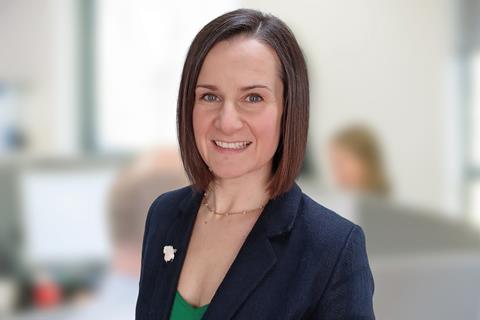Non-executive director and incoming CEO of Paradigm Norton, a financial planning firm in Bristol

I did a training contract at a smaller firm in Exeter. The best part? They threw me straight into the deep end. I still remember in my first week being shown a cabinet full of files and told, ‘these are the firm’s debts. They’re yours now!’ And that was it, off I went, speaking to clients who had walked in off the street, and attending court. It was a real baptism of fire.
I took my financial exams after moving to Clarke Willmott’s financial services team in 2006. They were very clear in the interview that they asked all the team to take the exams – and I would too. I first passed those exams in 2008. And I upgraded those exams in 2014 after the then Financial Services Authority increased the basic qualification requirements for financial advisers.
'I am extremely proud of what I achieved as a lawyer but this was not a sudden volte-face to another career. I moved to working for my law firm four days a week in 2022 and I worked with three other companies on the fifth'
I will become CEO of Paradigm Norton next April. It is a bit of an unusual move from one perspective. But it makes sense when you consider my career so far and the influence that financial planning has had on me over almost two decades. My professional life has been intimately entwined with the financial services sector for 18 years. Through my desire to understand more, I attended as many financial adviser conferences as I could. I discovered a specific subsector of finance called financial planning. This opened a door to me that I never knew existed about purpose, about living life to the fullest, and about money enabling life and not being a measure of success.
Having spent years immersed in this way of thinking I could not help but consider my own life and whether I was living it in a way I would not regret. I am extremely proud of what I achieved as a lawyer but this was not a sudden volte-face to another career. I moved to working for my law firm four days a week in 2022 and I worked with three other companies on the fifth. I was (and still am) a non-executive director for two financial firms (including Paradigm Norton) and I consulted for a tech company which supports collaboration between lawyers, accountants and financial advisers. I loved being part of these companies and my transition to moving away from being a lawyer started then.
For the past 20 years, I have worked closely with financial advice firms, gaining insight into their challenges and the regulatory environment they navigate. I have also been involved in cases against financial firms, which has given me a unique perspective on identifying where things can go wrong – a topic I am currently exploring in a book I am writing. Through this experience, I have developed a different view on financial matters. One of the most valuable skills I have acquired along the way is the ability to coach and develop the people I work with. In professional services, people are our greatest asset. If we can create an environment where they can thrive, everyone benefits.
If I had a pound for every time someone asked me a question about law or finance, this would be a piece on retirement, not career change! As a lawyer, most of the questions I get have definitely leaned towards law rather than finance, though we will see if that shifts in the coming year. Lately, one of the most frequent questions I have been asked is how I managed to navigate this career change, what motivated it, and what it is like working without the ever-present pressure of billable hours.
I took up triathlon in 2015 after finishing my first marathon. I was 38, juggling three small kids and a busy law career. I figured, ‘why not add another thing to the chaos that’s just for me?’ Pre-pandemic, I turned my commute into a workout –running or cycling to the office. Swimming, though? I dragged myself to 7am swim sessions.
By the time Covid hit, I had survived a few triathlons (including a 70.3 half-Ironman), and was going through a divorce. I figured, ‘why not up the ante?’ and set my sights on a full Ironman to stay sane – because apparently, triathlon therapy is a thing. Training got intense, with early morning workouts in the summer and blocked-off run or swim meetings in my calendar during winter. I wanted people at work to know it’s OK to prioritise health, so when they saw those appointments, it gave them the confidence to do the same – if not go for a run, then maybe a stroll to grab a coffee!































No comments yet